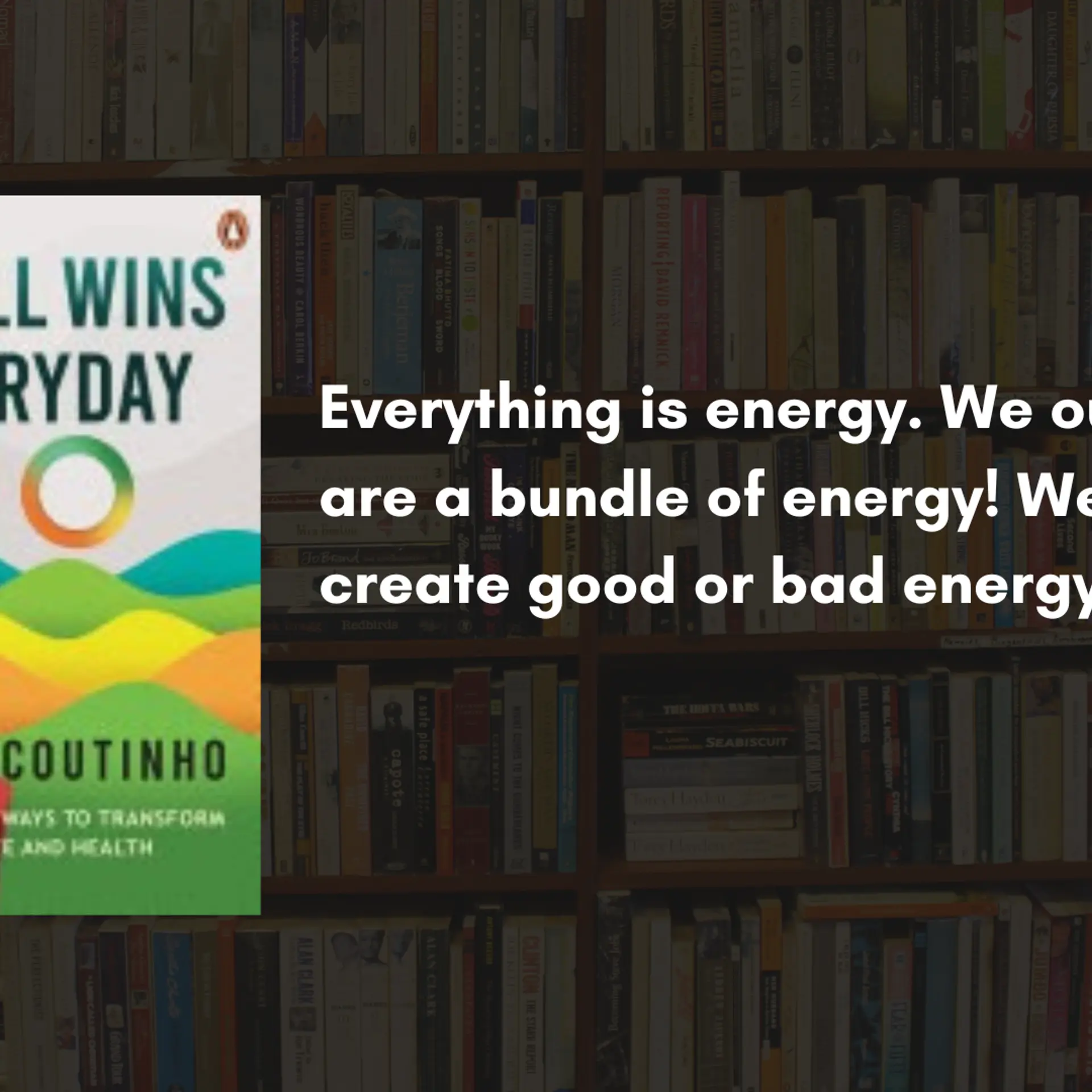An organic farm and a sanctuary for distressed animals in the mountains: the story of Peepal Farm
Peepal Farm Products is a not-for-profit social enterprise that makes and sells handmade, cruelty-free products made by local women of Himachal Pradesh. All proceeds are used to fund the animal clinic and animal welfare programmes run by them.
In Dhanotu, a small village near Dharmshala in Himachal Pradesh, Shivani Singh found her calling in helping local women and stray animals through her organisation .
Started as a small farm selling only herbs in 2017, Peepal Farm has evolved into an animal rescue organisation and organic farm. This women-powered social enterprise’s product line has grown gradually over the years into a vast range of categories, and the underlying mission all along has been generating more employment for women and helping distressed animals.
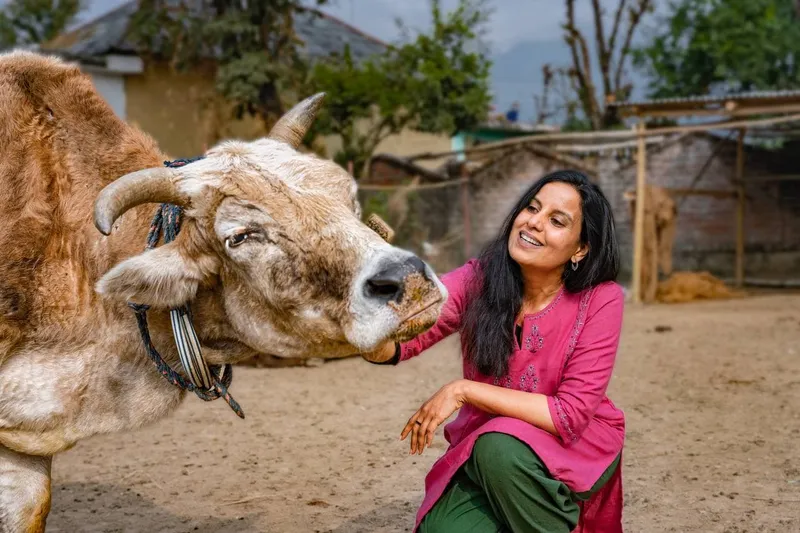
Shivani Singh
From organic and vegan food to upcycled decor, skincare products, and handcrafted jewellery, the social enterprise led by Shivani ensures each one of these products is handmade by the incredibly talented local women. The revenue generated is then used towards animal welfare initiatives like medical treatments and awareness about animal rescue and shelter.
Starting up
Started in 2014 by Shivani and her husband, Robin Singh, Peepal Farm is essentially an animal rescue organisation and organic farm rolled into one social enterprise.
Peepal Farm has various projects going on, major ones being - stray animal rescue, organic farm, Peepal Farm Products and Media. The farm cares for all types of injured animals, including cats, mules, and pigs, as well as cows and stray dogs.
Peepal Farm conducts rescue operations within an eight-kilometre radius of where they are stationed and helps them get treated if needed with the help of their in-house veterinary doctors.
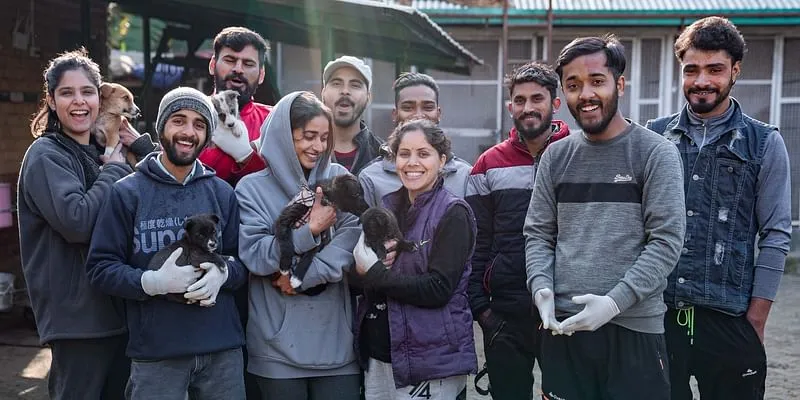
Animal rescue team
“The purpose of Peepal Farm was to help animals heal and be heard. To heal distressed animals, we had an animal rescue program. To help animals be heard, we wanted to involve people visiting us and inspire them with our ideas,” says Shivani.
Initially, Shivani started by printing out posters and flyers with messages on animal welfare, and sticking them for display in tourist spots, but these would often end up in trash. Hence, she shifted to making products that could be retailed in the local shops, with their packages carrying information on what the farm does, who they are, etc.
Starting with farm grown herbs, Peepal Farm’s product line kept growing gradually into a vast range of categories with one other major aim in mind - to generate more employment for women. Peepal Farm’s diverse offerings are all handmade by a team of 17 women from the village.
Sustainable practices
The farm products are divided into food items (such as spreads including peanut butter), raw and fresh herbs from the farm, recycled products (pouches, embroidered hoop arts from the donated clothes) as well as biodegradable products (cow dung diyas for Diwali, and planters). These are sold on Peepal Farm’s website, Amazon and through local shops.
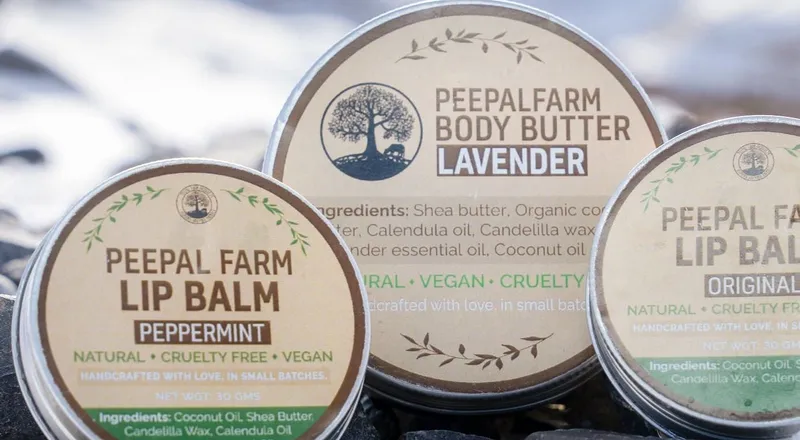
Speaking about the sustainable measures taken by the team, Shivani says, “We strongly believe in reducing the carbon footprint in this world - and sustainability plays a major role in it. There is a dire need for reducing usage of materials that take the longest to decompose, and cause enormous harm to the planet and its creatures.”
The team tries to reduce plastic as much as possible and uses cardboards, newspapers and clothes where possible.
“However, plastic is one such material which has been at the epicentre of most environmental discussions. No matter how much we try to minimise its use, we are still stuck with using a lot of it.”
The team packages the products in Polyethylene terephthalate (PET) plastic jars- which is a highly recyclable plastic resin and a form of polyester.
Employing women
“Although I was on my own when I started Peepal Farm products, girls from the villages around joined me in support of a bigger cause. By doing this, they were also creating their own identity. Making them realise this also became a big part of my job,” says Shivani adding that with more sales and incoming work, she was able to give employment to more girls from the village.
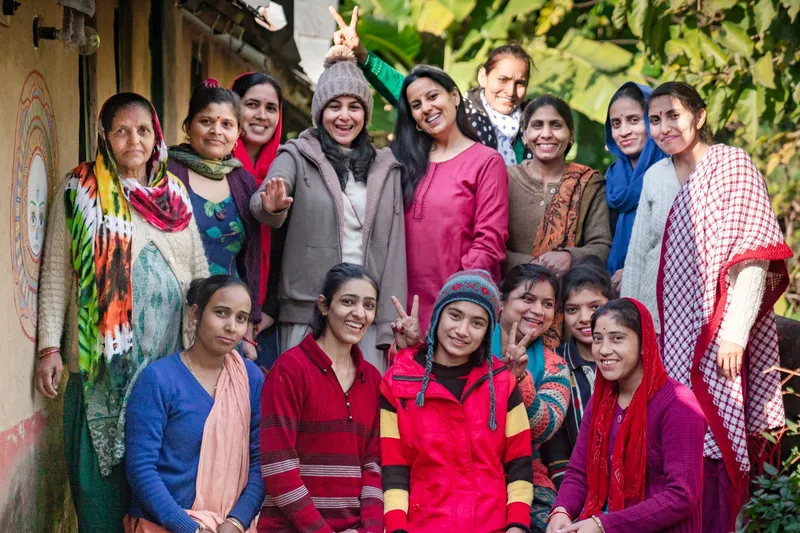
The team behind Peepal Farm Products
Shivani adds that the local women were initially discouraged by their families from going out and working, and thus, it was a challenge to begin with. However, word-of mouth helped, and more women started to come forward.
In the last two years alone, products from the farm have generated close to Rs 20 lakh, and contributions from this have helped the farm rescue and provide treatments to nearly 4,000 animals so far.
Edited by Anju Narayanan



![[Sustainability Agenda] How this Himachal enterprise promotes ethical beekeeping, creates employment opportunities for rural women](https://images.yourstory.com/cs/5/54bfb360112e11ecbdb4b127003811f4/Tenacious-Bee-Collective-1632923575717.png?fm=png&auto=format&h=100&w=100&crop=entropy&fit=crop)

